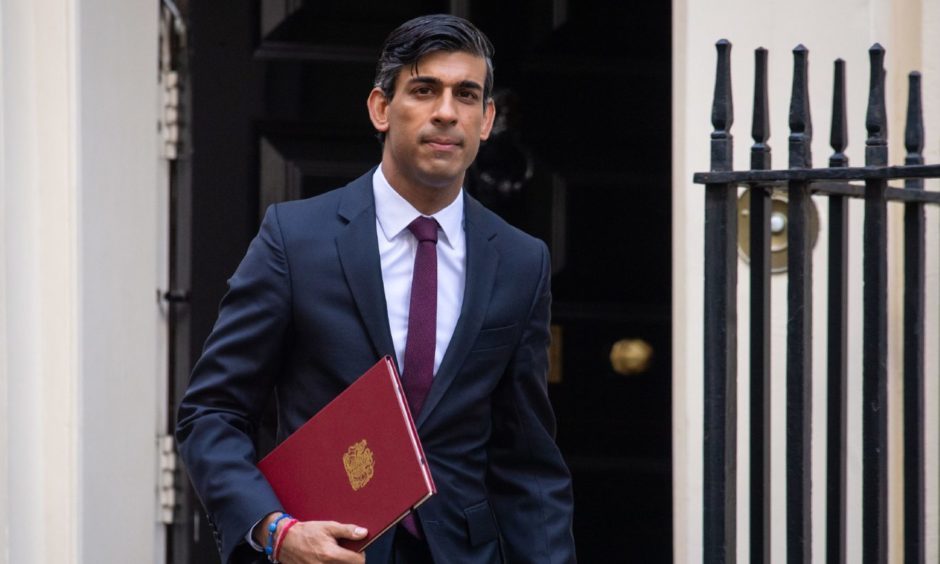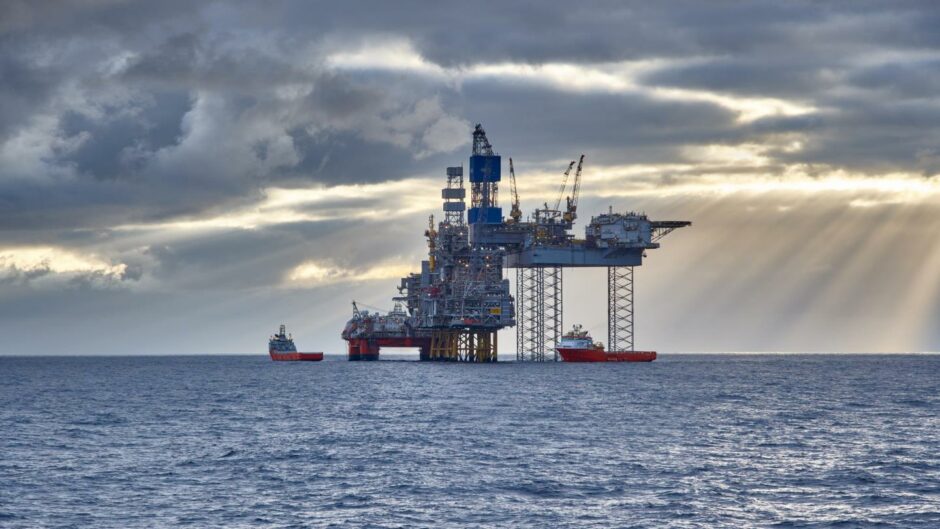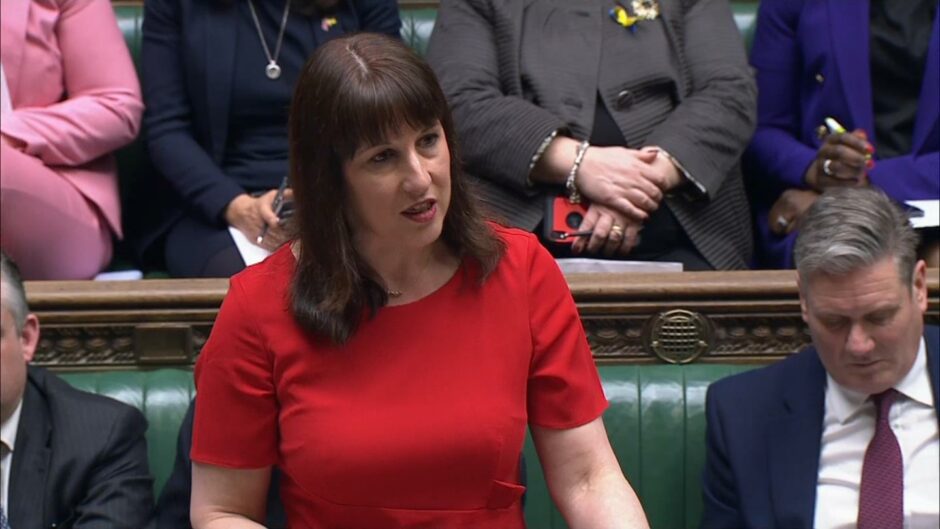
The North Sea has dodged calls for a windfall tax, but Treasury receipts from the sector are set to surge to their highest in over a decade.
Treasury takings from the North Sea are expected to jump from £3.1 billion in 2021/22 to £7.8 billion in 22/23, according to the Office for Budget Responsibility (OBR).
That would represent a figure “well over ten times higher than pre-pandemic receipts” in 2019/20 and the “highest fiscal return from the North Sea since 2010/11” when £9.6bn was collected, the budget watchdog said.
The forecast is based on average oil and gas futures prices over the next three years from the first week of the invasion of Ukraine.
A sigh of relief for the North Sea on windfall tax
It comes as Rishi Sunak has opted to reject calls to raid the takings of North Sea firms, a move that sparked anger from the opposition benches.
Shadow Chancellor Rachel Reeves accused him of not understanding the “scale of the challenge” being faced by working families.
She said: “Who does the Chancellor prioritise? He continues to defend the record profits of oil and gas producers, who themselves admit that they have more money than they know what to do with.
“BP describes this crisis as a cash machine for them, but it is British people who are paying out. And it is deeply regrettable that the SNP have joined the Tories in wanting to shield oil and gas producers from Labour’s progressive measure.
“When I set out Labour’s plans for a windfall tax in January, we estimated that it would have raise £1.2 billion, now because of the continued rise in global oil and gas prices, it would today raise over £3bn.
“That is money that could be used to help families, pensioners and businesses with a cut to VAT.”
Jobs and investment
In the face of countless demands for a windfall tax, industry repeatedly warned that such a measure would stunt North Sea investment, worsening the UK’s energy crisis.
There were also fears it could impede the sector’s efforts to transition to low carbon sources.

Responding to Ms Reeves, Mr Sunak said: “It is telling that she opened her statement, yet again calling for a windfall tax.
“We know on this side of the House that we want to encourage more investment in the North Sea.
“We want more domestic energy, we want more jobs for the UK and a windfall tax would put that off.”
Mr Sunak’s plans to tackle the energy crisis drew criticism from the Scottish Parliament too, with finance secretary Kate Forbes saying there was “nothing” to address soaring bills.
Households and businesses are seeing soaring energy costs right now – that could plunge thousands into fuel poverty. There was nothing in the #SpringStatement to reduce energy bills today or uprate benefits. /1
— Kate Forbes MSP (@_KateForbes) March 23, 2022
Tessa Khan, director at environmental group Uplift, also slammed the Chancellor, accusing him of “caving in to” the interests of oil and gas companies.
She said: “The crippling rise in the price of oil and gas is why a quarter of UK households won’t be able to pay their energy bills this Autumn, and yet the oil and gas companies, who are swimming in profits, have not been asked to put their hand in their pocket to help.
Sunak’s calculation that these companies will act to benefit the UK public rather than their shareholders’ pockets is fundamentally misconceived.
North Sea production won’t make any difference to people’s energy bills, a fact the government admits. And most of it – the oil from Cambo included – will be exported abroad and the profits pocketed.
Further, it will only make the impacts of the climate crisis, which are already hurting people across the UK, worse.
While countries in Europe are powering past gas with cheaper renewables and energy efficiency, the Chancellor has listened to the whispering of the oil and gas industry and chosen to protect their profits over alleviating the anxiety and improving the lives of UK families who are facing the biggest fall in living standards since the 1950s.
This is the Chancellor caving in to an industry addicted to profit, not a plan for helping ordinary people facing unbearable choices.”
Premium prices
Oil and gas prices have surged to their highest in more than a decade in the wake of the invasion.
Month-ahead gas prices jumped to around £5.40 a therm on 7 March and oil to a 14-year high of around $130 a barrel on 8 March, following the announcement of US and UK curbs on Russian oil exports, before falling back.
The OBR said it closed its commodity price forecast on March 2, when monthly peaks averaged at £3 a therm and $103 a barrel, almost 100 and 45 per cent higher respectively than the peaks in its October forecast.
Deirdre Michie, chief executive of Offshore Energies UK, said: “The OBR figures published today show that the oil and gas industry is forecasted to pay £15.7billion in taxes over the next three years, significantly more than expected last October. £11billion of that is forecasted to be paid by the end of 2023.
“A predictable and stable fiscal regime will ensure industry continues to attract investment in energy supplies, support energy security, and accelerate net zero. We will work with the government as they look to encourage capital investment across the UK in support of this.
“Our industry needs long term confidence in the UK, allowing us to make major investment decisions in both oil and gas production and the new low carbon technologies including Carbon Capture and Storage, hydrogen and offshore wind.”
Fuel duty
Away from oil and gas, the Chancellor announced a 5p cut to fuel duty until March next year in order to help motorists.
It is just the second time in 20 years that the levy has been slashed.
Richard Smith, partner at Sandstone law, said: “As inflation hits a 30-year high the chancellor has announced a 5p fuel duty cut to help drivers and haulage companies. It will take a few pounds off the cost of filling up your car but it won’t make much of a dent on rising fuel prices and won’t affect the huge profits that continue to flow into the oil and gas companies.”
Energy efficiency
There was an announcement too on energy efficiency measures, which Mr Sunak said would make a “big difference” to bills.
For the next five years, home owners wont have to pay VAT to install materials like heat pumps, solar panels and insulation – previously it was 5% for some items.
Under the measures, a family having a solar panel set installed will benefit from tax savings of £1000, while their bills will drop by more than £300 a year, Mr Sunak said
Recommended for you

 © Supplied by Universal News And S
© Supplied by Universal News And S